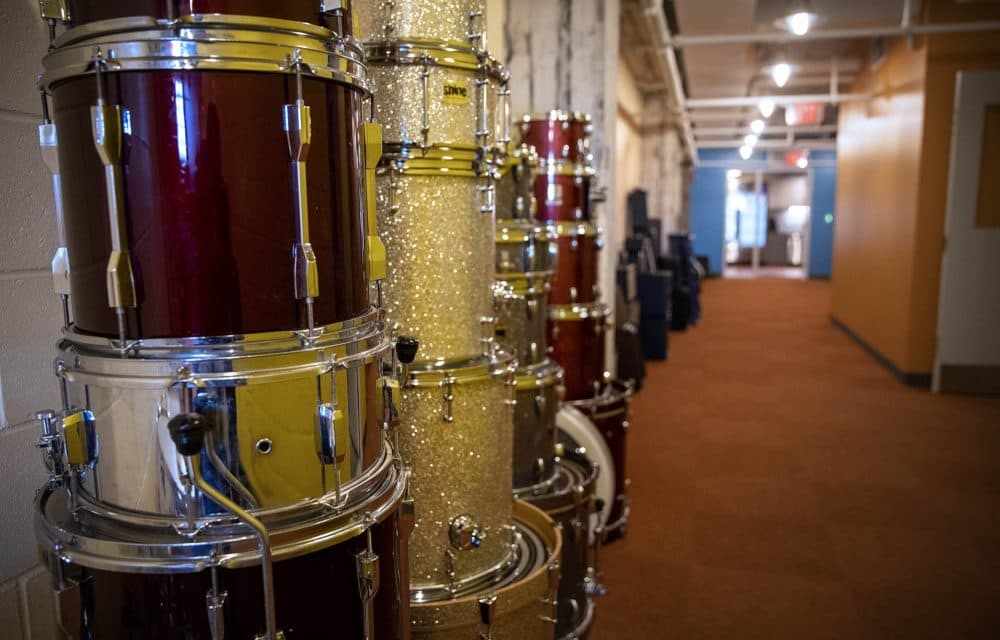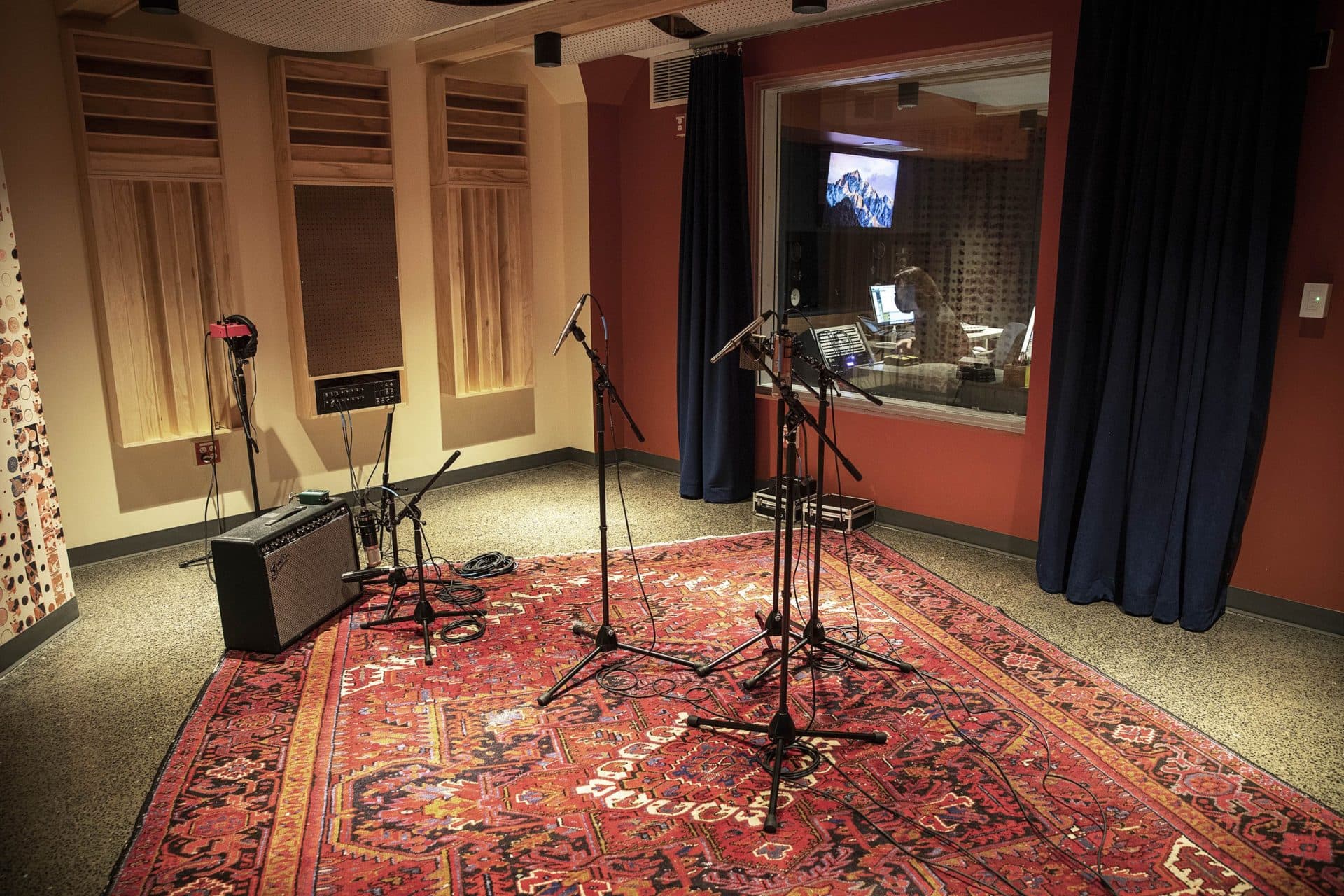Advertisement
In A Cultural Landscape Beset With Loss, This Community Music Studio Is Expanding
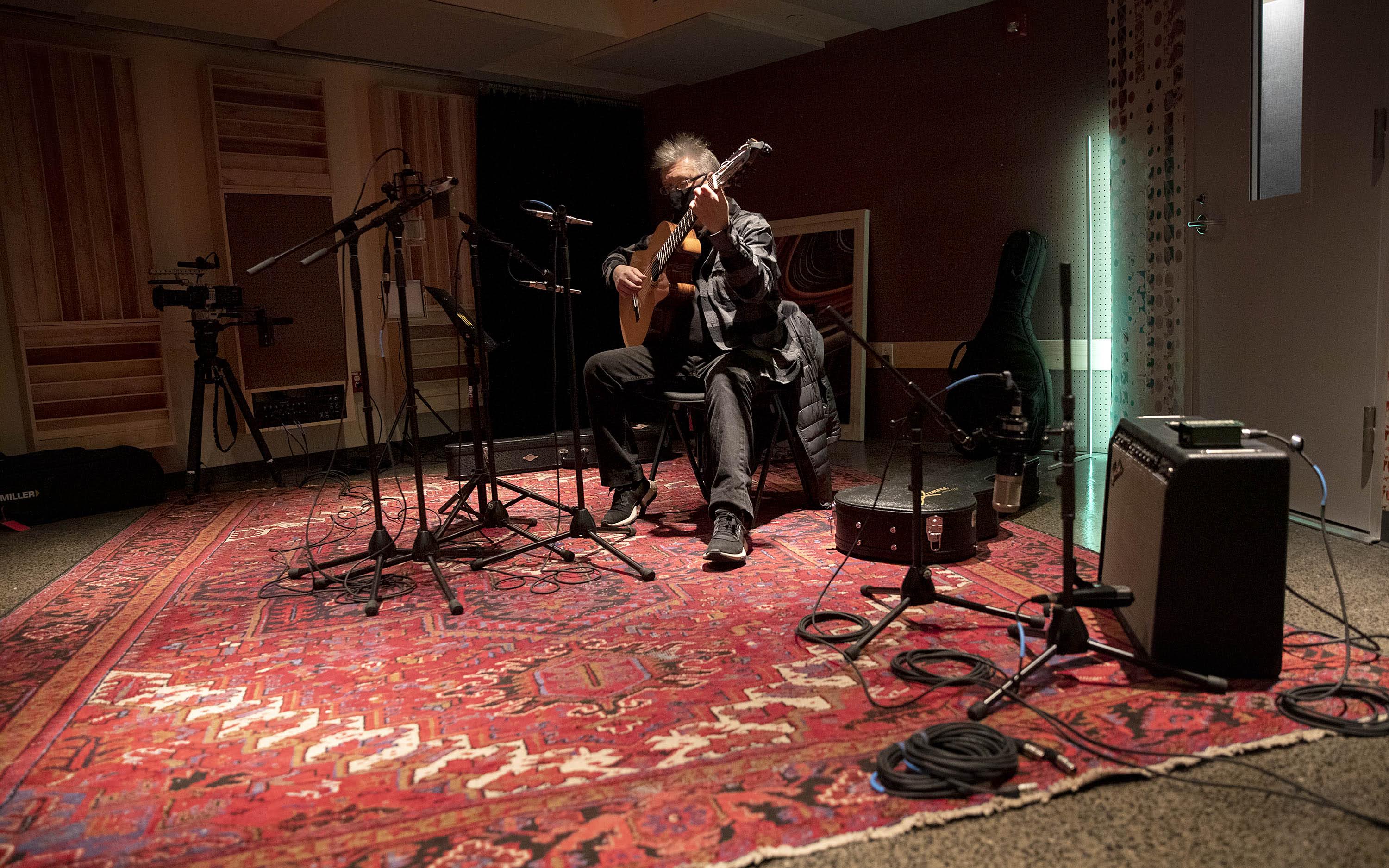
On a recent Friday morning, the gleaming new foyer of The Record Co. at 960 Massachusetts Ave. in Boston was, as usual, empty. In place of a receptionist, a computer monitor and a bottle of hand sanitizer greeted visitors at the door. A well-stocked kitchenette at the back of the room was quiet.
“The whole place was designed with the idea of people spontaneously running into one another at the coffee pot,” said Matt McArthur, founder and executive director of The Record Co. But the pandemic had forced some changes. McArthur explained how a fancy HVAC system kept the air in different rooms from mixing. Pointing at the ceiling, he described the germ-killing UV lights that blasted fresh air on its way in from outside. “I'm basically a mechanical engineer at this point,” he joked.
McArthur and his team were preparing for a grand opening on Jan. 14, and they were in the throes of the final push. “It's a wonderful cocktail of excitement and total exhaustion,” McArthur said. “Wondering if today is the day you're just going to fall flat like a cartoon.”
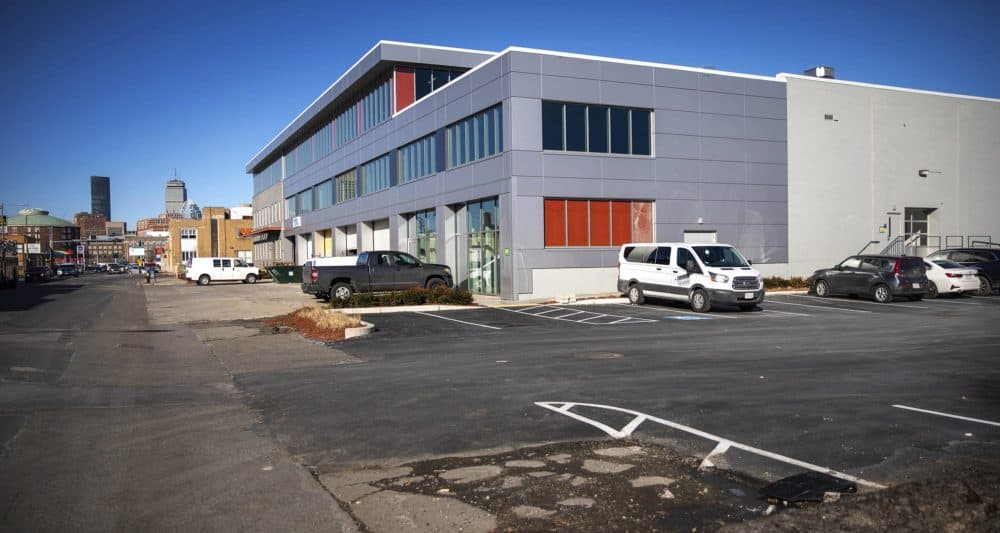
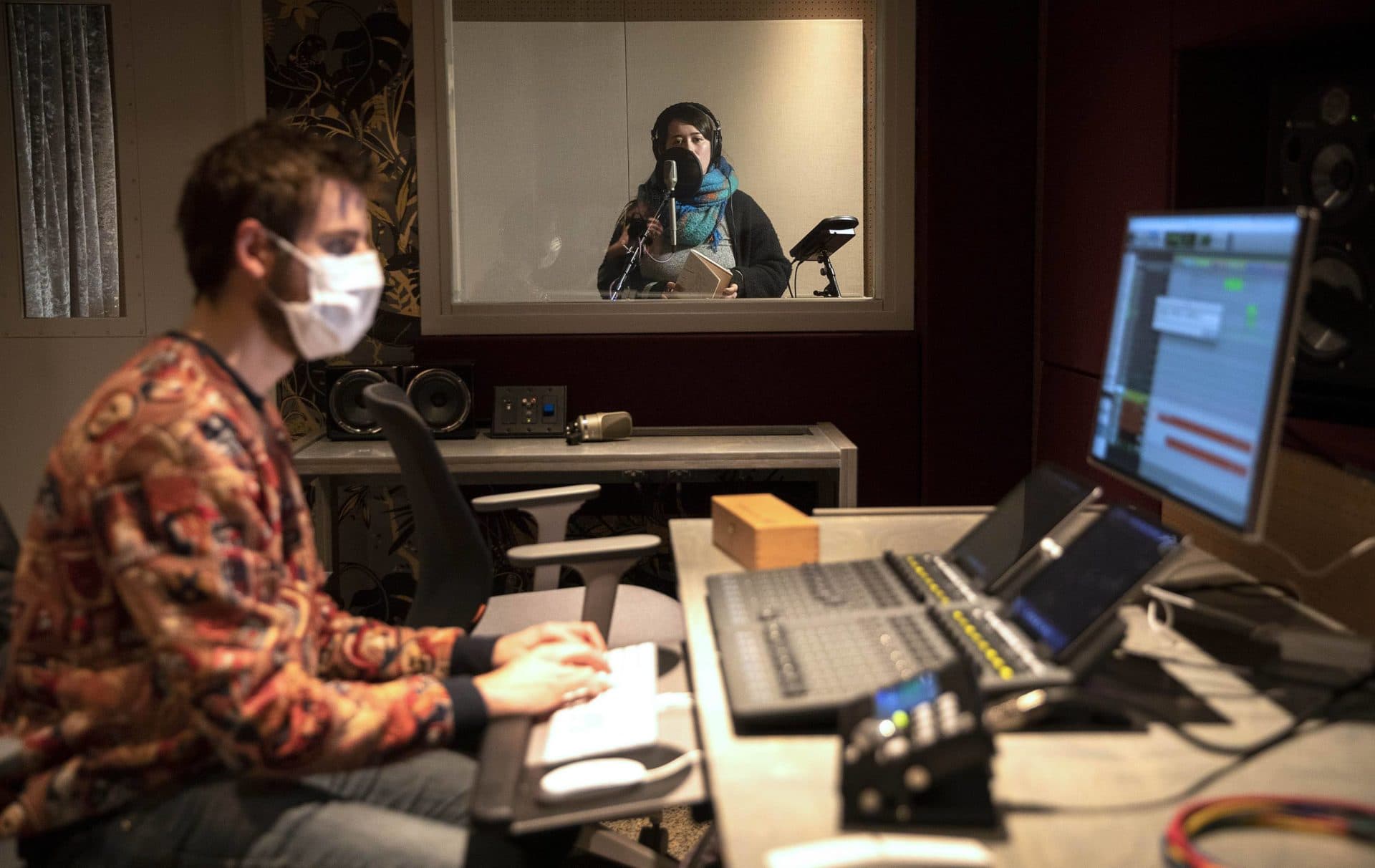
The $4.5 million project had taken over a year, delayed six months by the COVID-19 shutdown in early 2020, which cost the organization an additional $700,000. Things, in other words, did not go as planned. But in a cultural landscape beset by layoffs, institutional closures and record-breaking financial losses, The Record Co. managed to achieve something rare: growth.
McArthur founded The Record Co. 10 years ago with the mandate to provide low-cost recording studio space to Boston-area musicians. Located in a squat industrial building in a meatpacking district on the edge of Dorchester, the nonprofit’s offerings were basic: there was a big recording studio and a small recording studio; both were cheap; engineers were not provided.
By 2018, The Record Co.’s smaller studio was booked so solid people sometimes had to wait weeks to reserve a slot. That same year, the building was sold; it seemed as good a time as any to move to a larger space. In the end, The Record Co. was able to negotiate a new lease for a much larger space in the same building — over 12,000 square feet, more than twice the size of its original home.
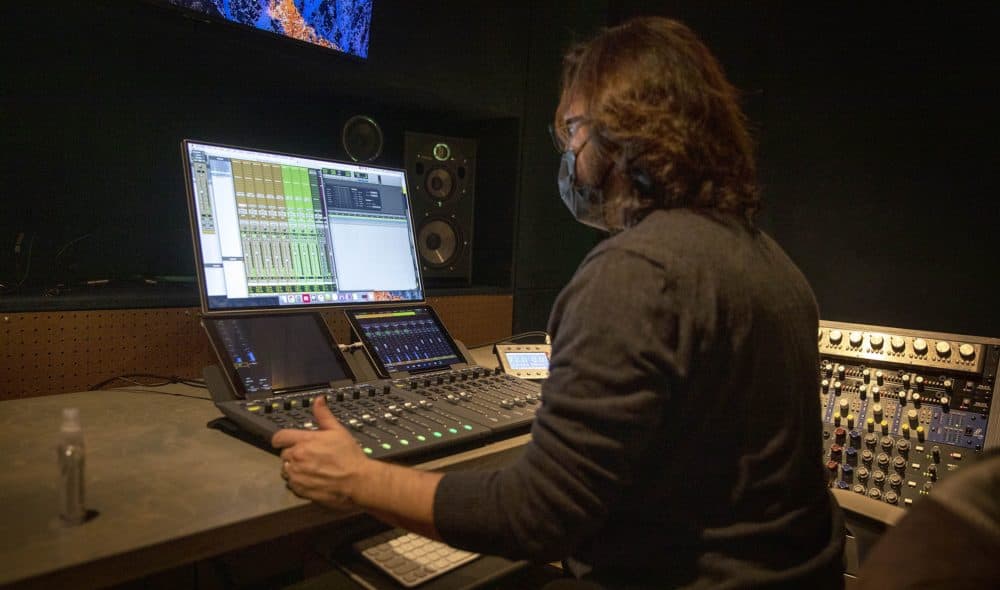
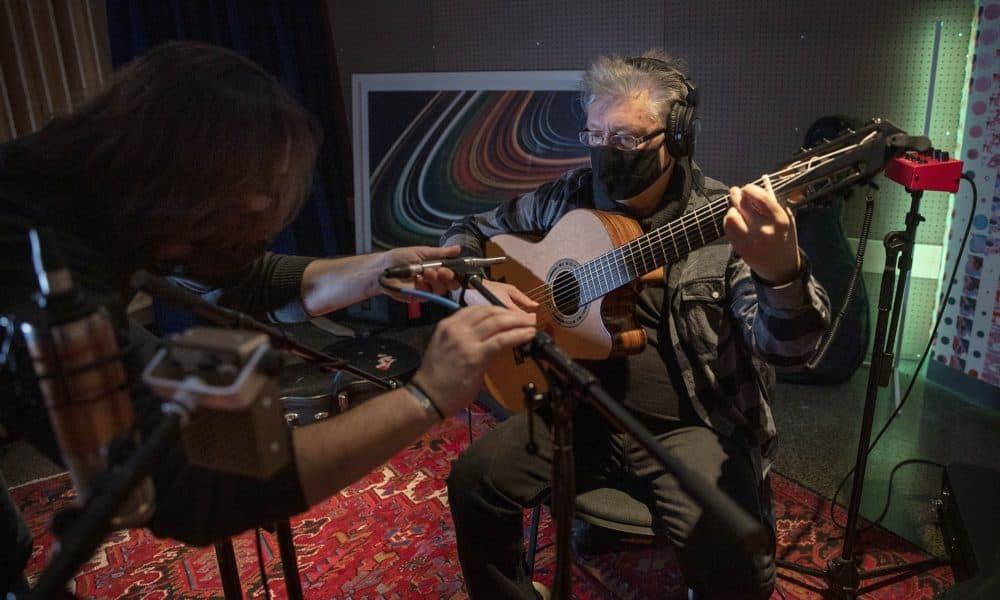
A week before the reopening, McArthur walked through The Record Co.’s orange-carpeted corridors, past stacks of shiny drums and a parade of keyboards leaning against one wall. He opened the door to Studio B, where an engineer was setting up the cozy, atmospherically-lit space for a recording session. Nearby, in a smaller studio designed for tracking vocals and overdubs, a lone microphone stood expectantly. Down the hall, the third and largest studio was undergoing its final preparations. It was big enough to accommodate a small stage, McArthur said, and was permitted for intimate live performances — when the time came.
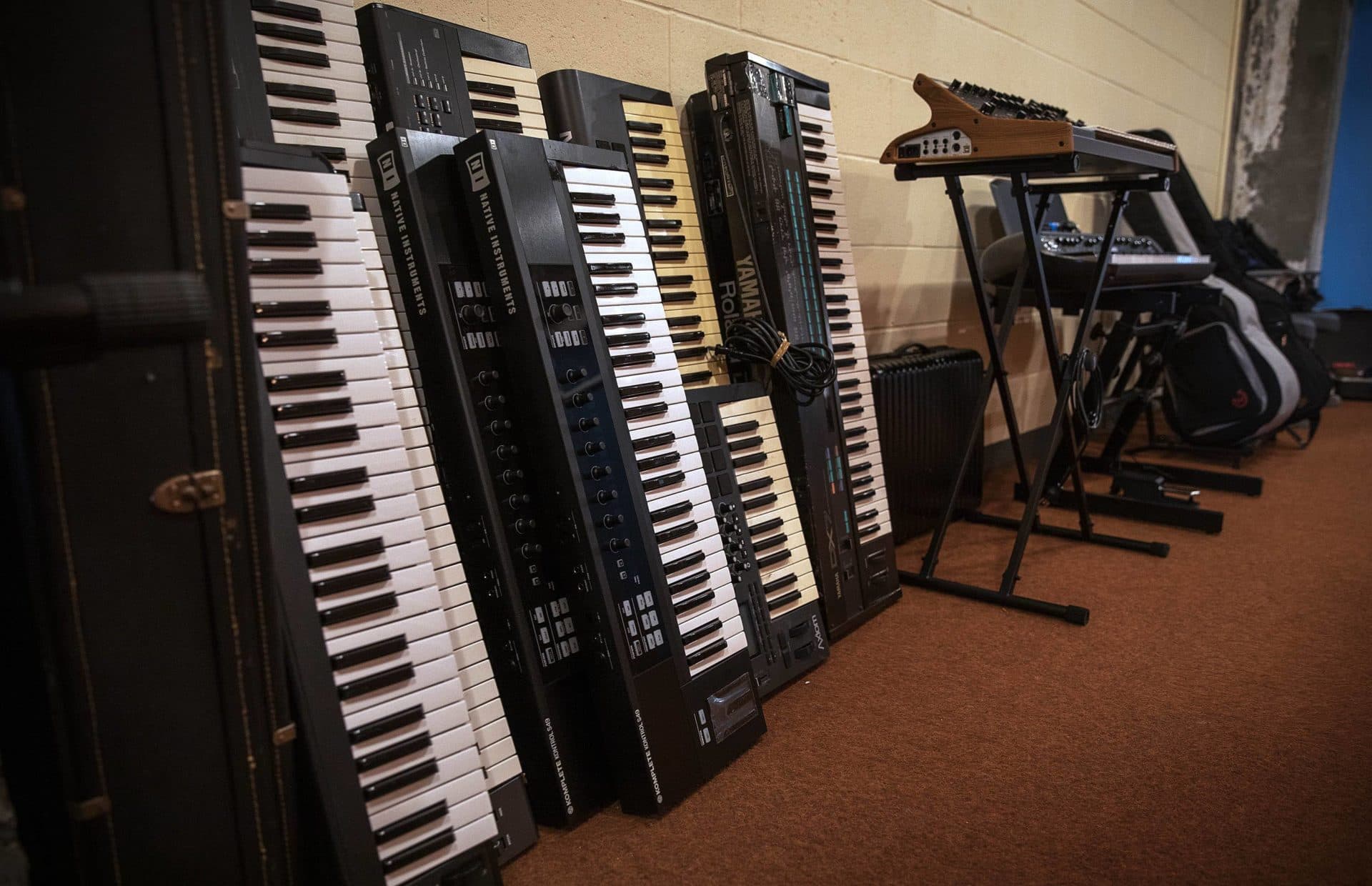
Most significantly, the facility contained 15 rehearsal rooms, outfitted with soundproof panels, sleek speakers and, in one case, a vintage organ. Like the recording studios, the practice rooms would be subsidized, rentable from $10 to $25 per hour, McArthur explained.
The idea to add rehearsal space was not always part of the plan. The Record Co. originally hoped to fill the city’s dearth of independent concert venues by building a performance space. But, as hundreds of respondents to two community surveys made plain, affordable practice studios were hard to come by, too. “The simple version of the feedback was...‘I’m going to have to leave the city because I have nowhere to practice, so why do I care about the venue thing unless I actually have the infrastructure that I need to make new work,’” McArthur said.
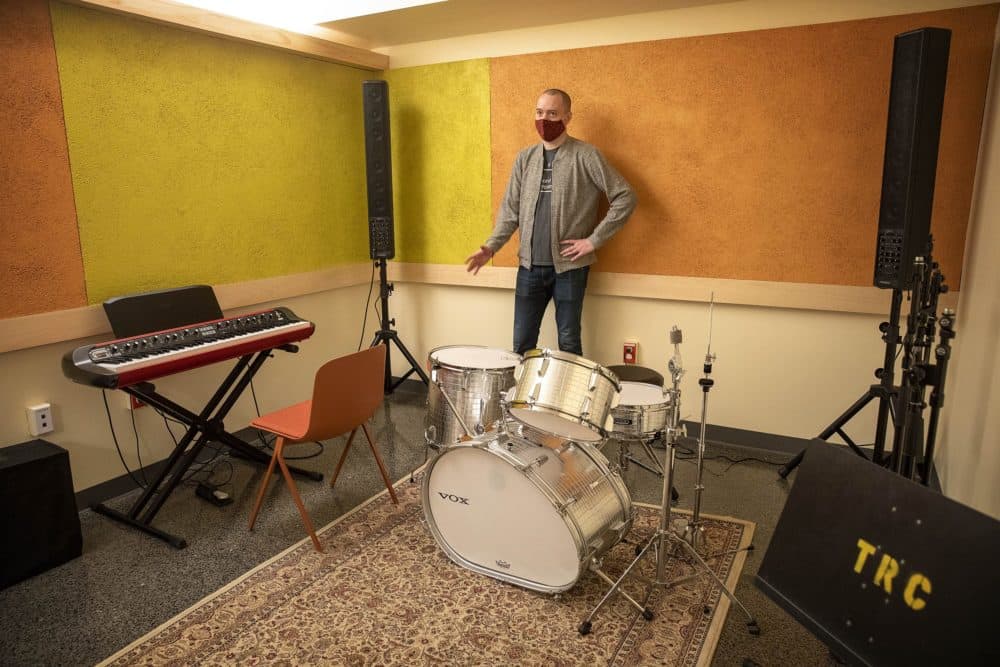
Standing behind a drum set in one of the practice rooms, McArthur explained how the rehearsal studios would work: individuals and groups could reserve by the hour, and The Record Co. would provide them with whatever equipment they needed. Some musicians, used to storing their personal equipment in privately-rented studios, might not like the hourly model, McArthur admitted. But sharing space meant rooms would rarely sit empty. “In big cities, it doesn’t make sense for any square foot of...cultural space to sit unused for any amount of time,” he said.
A little later, sitting in a large, cluttered office with The Record Co.’s community manager Maria Bartolotta, McArthur reflected on the organization’s unlikely success.
“We have invested a significant amount of time...in learning how to fundraise,” he said. “It’s not magic — it’s practice.” And, he pointed out, donor networks were more accessible to him as a young, white man. “Is it easier for me to relate to someone who can see me as their kid, or sees their kid in me?” McArthur asked. “I’m sure that it is.”
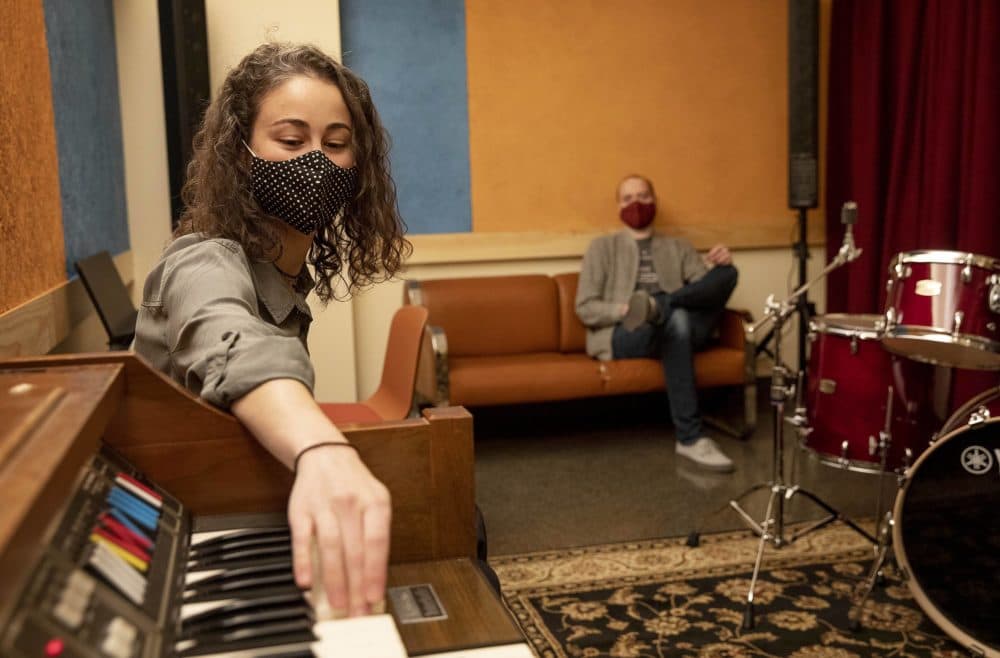
Under McArthur's leadership, The Record Co. emerged as a leader in Boston's cultural scene, combining entrepreneurial savvy and a penchant for business jargon with a friendly, community-oriented sensibility. It's still small, with just eight employees and a $760,000 annual operating budget.
Bartolotta said the organization was deliberate in how it deployed its resources. “Asking people what they need, not just observing what they need,” she said. “We've been trying really hard to get to know the community so that we can reflect what it is that they want and need, and advocate for them when that's possible.”
Like many cultural organizations in recent years, The Record Co. has made efforts to diversify its staff and adopt inclusive, anti-racist practices. Since 2019, a leadership council, made up of Black creatives and educators, has advised the organization on matters of race and equity, and the nonprofit’s three most recent hires are women of color. Still, The Record Co.’s staff, including its leadership and board, remains predominantly white.
McArthur hinted that, ultimately, he planned to step back from his role as executive director. But he cautioned that change could be tenuous. “That's why you see really high turnover of newly-appointed people of color in mostly white organizations, is those organizations haven't changed culturally,” he said.
In other words, The Record Co. still has a long way to go. But as the staff furiously prepared to open the new facility, it was possible to feel hopeful. McArthur paused, mid-sentence, as he caught the first strains of music emanating from one of the studios. “That’s awesome,” he said, eyes brightening. “What’s it going to sound like when all 15 rooms are full?”
